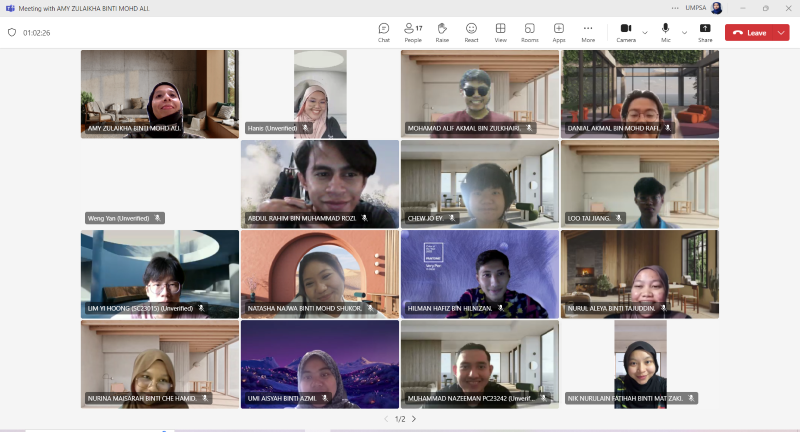Empowering TVET Graduates: The Role of English Proficiency in Global Competitiveness
Malaysia’s Technical and Vocational Education and Training (TVET) system plays a pivotal role in fortifying the nation’s economic competitiveness, particularly in addressing the complexities of the Fourth Industrial Revolution (IR 4.0).
The Malaysian Technical University Network (MTUN), through the TVET Termaju 2030 strategic roadmap, has established six fundamental pillars to drive this transformation: Governance & Policy Empowerment, Talent Excellence, Academic Excellence & Internationalisation, Research, Innovation & Commercialisation, Technological Sustainability & Industry Networking, and Digitalisation & Smart Campus Development. These pillars provide a structured framework for enhancing the quality and relevance of TVET programmes, ensuring that graduates are equipped with the requisite knowledge, skills, and adaptability to thrive in an increasingly competitive global workforce.
As a distinguished institution within MTUN, Universiti Malaysia Pahang Al-Sultan Abdullah (UMPSA) is steadfast in its commitment to advancing these aspirations through the implementation of Flexible Education. This initiative is manifested through a range of pioneering teaching and learning strategies, including the integration of e-learning methodologies, coordinated by the Centre for Teaching Resources and e-Learning (PSPe) under the Academic & International Affairs Department (JHEAA). UMPSA has also made remarkable advancements in the development of Micro-Credentials (MC) in collaboration with prominent industry partners. The university further enhances its global reach through participation in the Global Classroom initiative, credit transfer mechanisms via stackable MC accreditation programmes, and preparations for Open and Distance Learning (ODL). By spearheading these initiatives, UMPSA ensures that its graduates emerge as highly competent, future-ready professionals capable of excelling in an evolving economic landscape.
However, in an increasingly interconnected world, technical expertise alone is insufficient for professional success. Proficiency in the English language plays an indispensable role in enabling TVET graduates to articulate their ideas effectively, collaborate seamlessly with international counterparts, and access a broader spectrum of career opportunities. The integration of English as a Second Language (ESL) within TVET education is, therefore, imperative in bridging this communication divide. This emphasis aligns with the Malaysian Education Blueprint 2013-2025, which highlights the importance of English language proficiency as a key driver of employability and global competitiveness. A graduate of mechanical engineering, for instance, may possess the technical acumen to design advanced automation systems; however, without the ability to effectively communicate these innovations, their potential for professional growth remains constrained.
At UMPSA, the Centre for Modern Languages, through its courses, plays a fundamental role in equipping students with both foundational and technical language competencies. Students undergo comprehensive training in listening, speaking, reading, and writing—essential skills that serve as the bedrock of both academic and professional success. Mastery of specialised vocabulary, grammatical accuracy, and technical discourse conventions enables students to interpret complex scholarly texts, compose well-structured reports, and deliver compelling presentations. Familiarity with industry-specific terminologies ensures that students can communicate seamlessly within their respective professional domains. By embedding these competencies into the curriculum, UMPSA fosters an educational ecosystem where language acquisition is strategically interwoven with technical mastery, ultimately empowering students to excel in diverse and dynamic professional landscapes.
The integration of English language proficiency within UMPSA’s TVET programmes represents a transformative approach that enhances both academic and professional trajectories. By bridging the linguistic gap, students are empowered to excel in their studies, secure international career prospects, and contribute meaningfully to their respective industries. Malaysia’s concerted efforts in fortifying TVET education are commendable, and the incorporation of comprehensive ESL training ensures that graduates are not only technically proficient but also linguistically adept. Investing in English language proficiency within TVET education is an investment in the limitless potential of future generations, equipping them with the competencies required to navigate, adapt, and excel in an increasingly complex global arena. Through its commitment to enhancing language education within technical disciplines, UMPSA is actively shaping a new generation of graduates who are not only adept in their technical fields but also articulate, adaptable, and prepared to lead in the modern world.
References
Department of Higher Education Malaysia. (2023). Pelan hala tuju TVET Termaju 2030 [TVET Termaju 2030 Strategic Roadmap]. Ministry of Higher Education Malaysia.
Ministry of Education Malaysia. (2013). Malaysian Education Blueprint 2013-2025. Ministry of Education Malaysia.
Ministry of Higher Education Malaysia. (2022). Higher Education 4.0: Enhancing learning and teaching through technology. https://www.mohe.gov.my
World Economic Forum. (2020). The future of jobs report 2020. https://www.weforum.org

Writer is a Senior Language Teacher at Centre for Modern Languages (CML), Universiti Malaysia Pahang Al-Sultan Abdullah (UMPSA).
This article represents the authors’ personal views and does not reflect the official position of Universiti Malaysia Pahang Al-Sultan Abdullah (UMPSA).
E-mail: amyzulaikha@umpsa.edu.my
- 259 views










